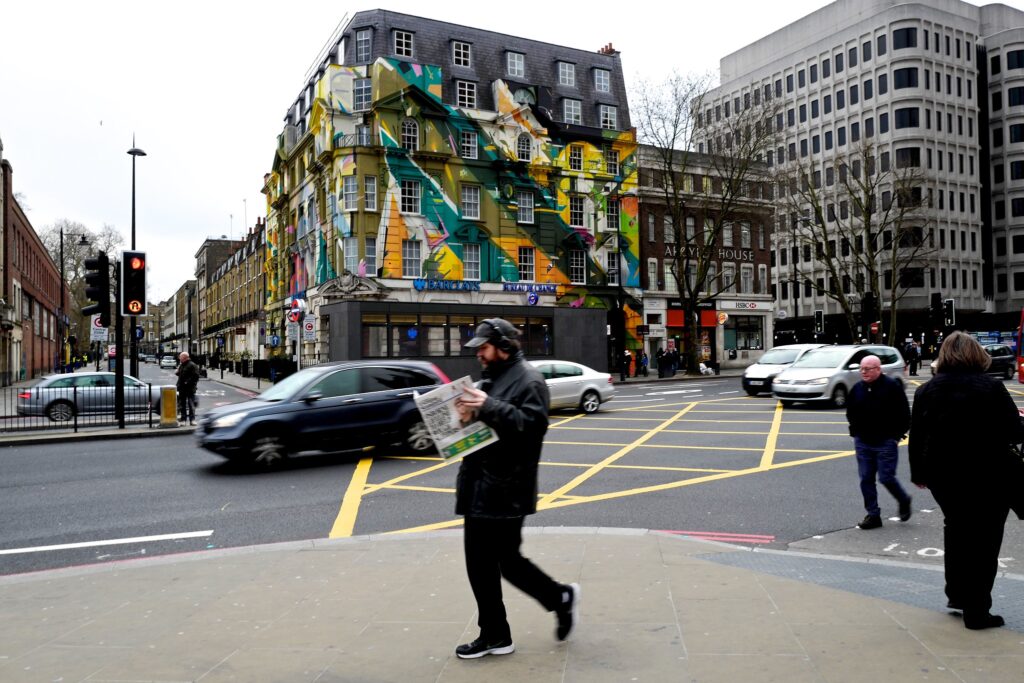Metropolitan life
Quote of the Day
”A trip through a sewer in a glass-bottomed boat.”
- Wilson Mezner, describing his time in Hollywood.
Musical alternative to the radio news of the Day
Mark Knopfler | Going Home | Royal Albert Hall | 2019
When it comes to Amazon, breaking up is hard to do
This morning’s Observer column
The European commission has opened an antitrust investigation of Amazon, on the grounds that the company has breached EU antitrust rules against distorting competition in online retail markets. Amazon, says the commission, has been using its privileged access to non-public data of independent sellers who sell on its marketplace to benefit the parts of its own retail business that directly compete with those third-party sellers. The commission has also opened a second investigation into the possible preferential treatment of Amazon’s own retail offers compared with those of marketplace sellers that use Amazon’s logistics and delivery services.
The good news about this is not so much that the EU is taking action as that it is doing so in an intelligently targeted manner. Too much of the discourse about tech companies in the last two years has been about “breaking them up”. But “break ’em up” is a slogan, not a policy, and it has a kind of Trumpian ring to it. The commission is avoiding that.
It is also avoiding another trap – that of generally labelling Amazon as a “monopoly”…
Long Read of the Day
Welcome to Apple: A one-party state
The tech giants have as much money and influence as nations. So what if we reported on them like countries? What would Apple be? A liberal China…
The generational impact of Moore’s law
Lovely post by Venkatesh Rao about the mindset induced by living in a world governed by Moore’s Law.
Moore’s Law was first proposed in 1965, then again in revised form in 1975. Assuming an 18-month average doubling period for transistor density (it was ~1 year early on, and lately has been ~3y) there have been about 40 doublings since the first IC in 1959. If you ever go to Intel headquarters in San Jose, you can visit the public museum there that showcases this evolution.
The future of Moore’s law seems uncertain, but it looks like we’ll at least get to 1-3 nanometer chips in the next decade (we were at 130nm at the beginning of the century, and the first new computer I bought had a 250nm Celeron processor). Beyond 1-3nm, perhaps we’ll get to different physics with different scaling properties, or quantum computing. Whatever happens, I think we can safely say Gen X (1965-80) will have had lives nearly exactly coincident with Moore’s Law (we’ll probably die off between 2045-85).
While there have been other technologies in history with spectacular price/performance curves (interchangeable parts technology for example), there is something special about Moore’s Law, since it applies to a universal computing substrate that competes with human brains.
GenXers are Moore’s Law people. We came of age during its heyday…
Original and interesting, like almost everything Rao writes. Worth reading in full.
Other, hopefully interesting, links
-
Diane Coyle’s Longlist for the economics book of 2020. Link. Damn: I’ve only read one of them.And she’s missed out Zachary Carter’s fine biography of Keynes (and Keynesianism).
-
iFixit’s iPhone 12 mini teardown looks at how Apple fit so much into such a tiny device. iFixit does wonderful analyses of intricate devices. This ‘teardown’ of the new mini version of the iPhone 12 is a gem. Link
-
Hermione Lee on what it’s like writing a biography of a living subject. Link In her case it’s the playwright Tom Stoppard. The book is out — and on my list. My friend Gerard is enjoying it. And I loved her biography of Virginia Woolf.
This blog is also available as a daily email. If you think this might suit you better, why not sign up? It’s free. One email a day, delivered to your inbox at 7am UK time. And there’s a one-click unsubscribe if you decide that your inbox is full enough already!

